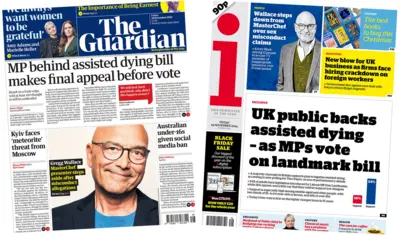We've updated our Privacy and Cookies Policy
We've made some important changes to our Privacy and Cookies Policy and we want you to know what this means for you and your data.
Payday lender Wonga reports ВЈ37.3m loss for 2014
Image source, PA
Top Stories
Short-term lender Wonga made a pre-tax loss of ВЈ37.3m in 2014 amid a major overhaul of the controversial company.
The lender, which made a pre-tax profit of ВЈ39.7m in 2013, witnessed a hefty drop in lending to UK consumers.
Wonga admitted it needed to address "the problems of the past" and is predicting another loss in 2015.
Last year, it apologised and agreed to pay compensation to customers after using letters from fake legal firms when chasing debts.
That left it with a compensation bill of ВЈ2.6m to be paid to 45,000 customers, not all of whom have been located yet.
Top Stories
It also had to write off thousands of unsuitable loans. Debts worth ВЈ220m from more than 300,000 customers were cancelled, owing to a failure to assess properly whether those borrowers could repay.
Shrinking business
Top Stories
Image source, Wonga
The company said that revenues fell by 31% in 2014 compared with 2013, driven by the cut in lending to UK consumers.
It reported a 36% fall in lending volumes fell to ВЈ732m last year, from ВЈ1.1bn in 2013. It made 2.5 million loans in the UK in 2014, compared with 3.7 million in 2013, while total customer numbers in the UK fell from about one million to 575,000.
Chairman Andy Haste, who arrived last summer, said: "We said Wonga would be smaller and less profitable in the near term as we focus on creating a sustainable business that lends responsibly and transparently to customers who can afford to borrow from us.
"We know it will take time to repair our reputation and gain an accepted place in the financial services industry."
Wonga, along with other payday lenders, now faces strict new rules from the regulator, the Financial Conduct Authority (FCA), which ruled that customers must face stricter affordability checks.
The regulator said it expected a large number of payday loan operators to exit the market as a result. Wonga said the new regulations had led to a 12% rise in operating costs.
Lenders are no longer allowed to roll over a loan more than twice, nor attempt to reclaim payment from a borrower's account more than twice. There is also a cap on the cost of lending in the UK.
Wonga's rate of defaults on loans by struggling borrowers stood at 6.6% last year, compared with 6.9% the previous year.
'Tough year'
Image source, Wonga
Paul Miles, chief financial officer, said costs had been cut. Earlier this year, the company announced 325 job losses - more than a third of its staff. The posts were being cut in teams that supported the UK business, affecting offices in London, Dublin, Cape Town and Tel Aviv.
Wonga said that it would expect a loss in 2015, but launch new products and seek debt funding in 2016, although it offered no outline of what those products might be.
Mr Haste said that the company needed to move away from "the almost exclusive reliance on one product and one price".
He argued there was still a place in society for short-term credit offered by payday lenders.
"But only if they put their customers first and lend responsibly. Regrettably, that has not always been the case at Wonga," he said.
In July last year, Wonga cancelled its British TV ad campaign, saying it did not want to be associated with "anything which inadvertently attracts children", although they continued for a time in Spain and Poland.
The company reported growth in international lending in 2014.
Wonga also sponsors Newcastle United football club, but has agreed to remove its logo from all children's replica shirts from the 2016-17 season.
Top Stories
More to explore
Most read
Content is not available








